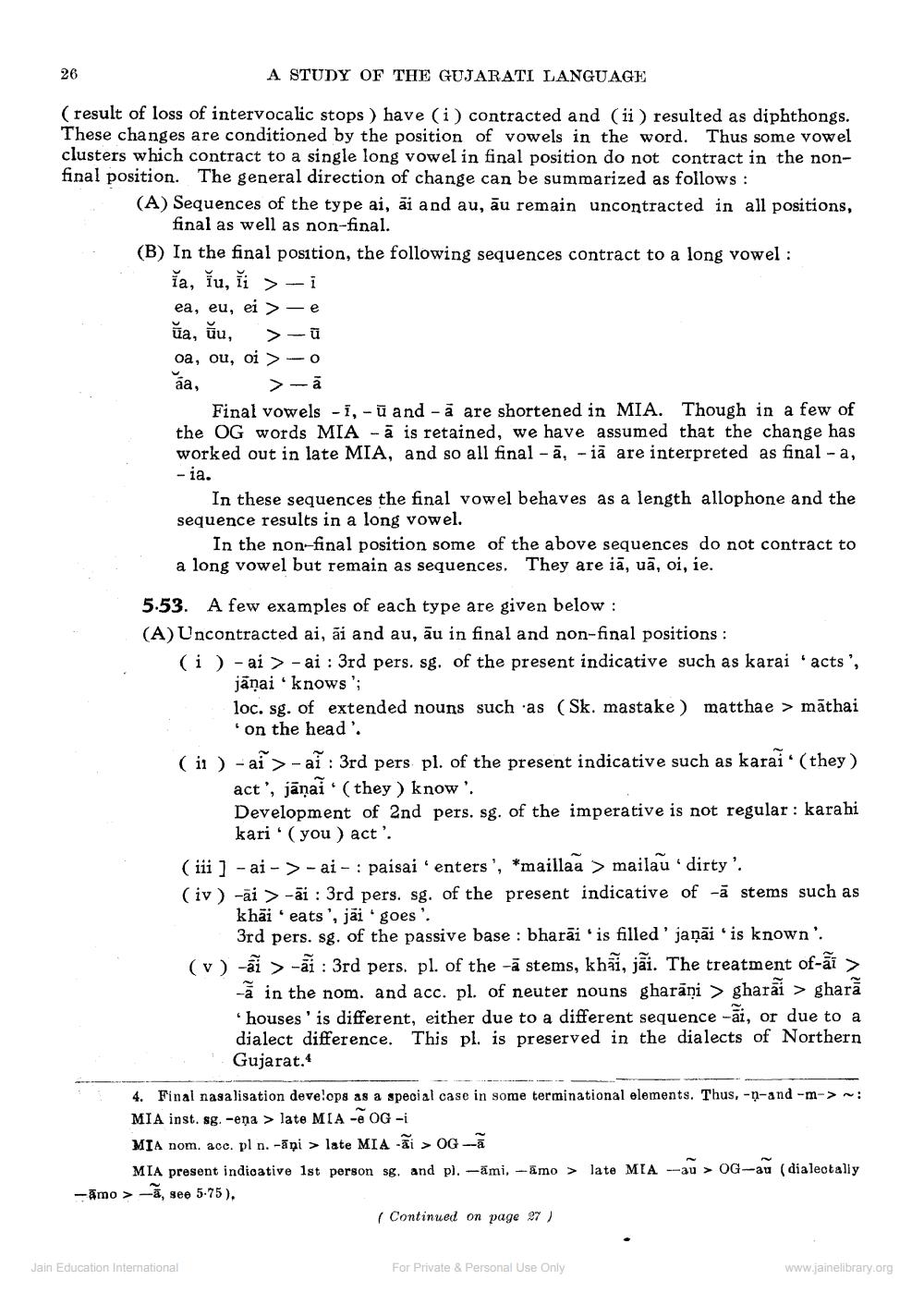________________
26
A STUDY OF THE GUJARATI LANGUAGE
(result of loss of intervocalic stops ) have (i) contracted and (ii) resulted as diphthongs. These changes are conditioned by the position of vowels in the word. Thus some vowel clusters which contract to a single long vowel in final position do not contract in the nonfinal position. The general direction of change can be summarized as follows:
(A) Sequences of the type ai, ai and au, au remain uncontracted in all positions,
final as well as non-final. (B) In the final position, the following sequences contract to a long vowel :
sa, žu, či >-i ea, eu, ei>ŭa, ūu, >-ū oa, ou, oi>-o áa,
- ā Final vowels -i, - ū and - à are shortened in MIA. Though in a few of the OG words MIA -ā is retained, we have assumed that the change has worked out in late MIA, and so all final -ā, - iā are interpreted as final-a, - ia.
In these sequences the final vowel behaves as a length allophone and the sequence results in a long vowel.
In the non-final position some of the above sequences do not contract to a long vowel but remain as sequences. They are iā, uā, oi, ie.
5.53. A few examples of each type are given below : (A) Uncontracted ai, ai and au, āu in final and non-final positions : (i ) -ai -ai : 3rd pers. sg. of the present indicative such as karai 'acts',
jānai 'knows '; loc. sg. of extended nouns such as (Sk. mastake) matthae > māthai
on the head'. (ii) -as > -as : 3rd pers pl. of the present indicative such as karai. (they)
act', jāņai. (they ) know'. Development of 2nd pers. sg. of the imperative is not regular: karahi
kari' (you) act'. (iii] -ai->-ai - : paisai'enters ', *maillaa > mailau.dirty'. (iv) ai>-ai : 3rd pers. sg. of the present indicative of -ā stems such as
khai 'eats', jāi 'goes'.
3rd pers. sg. of the passive base : bharāi'is filled 'jaņāi 'is known'. (v) -âi > -ai: 3rd pers. pl. of the -ā stems, khãi, jāi. The treatment of-ãi >
in the nom. and acc. pl. of neuter nouns gharani > gharãi > ghară houses' is different, either due to a different sequence -äi, or due to a
dialect difference. This pl. is preserved in the dialects of Northern + Gujarat.
4. Final nasalisation develops as a special case in some terminational elements. Thus, -n-and-m-> ~: MIA inst. sg. -eņa > late MIA - OG -i MIA nom. acc. pl n. -āņi > late MIA -ãi > OG ā
MIA present indioative 1st person sg. and pl. -āmi, -āmo > late MIA --au > OG-au (dialectally -Amo> -, see 5.75).
( Continued on page 97 )
Jain Education International
For Private & Personal Use Only
www.jainelibrary.org




